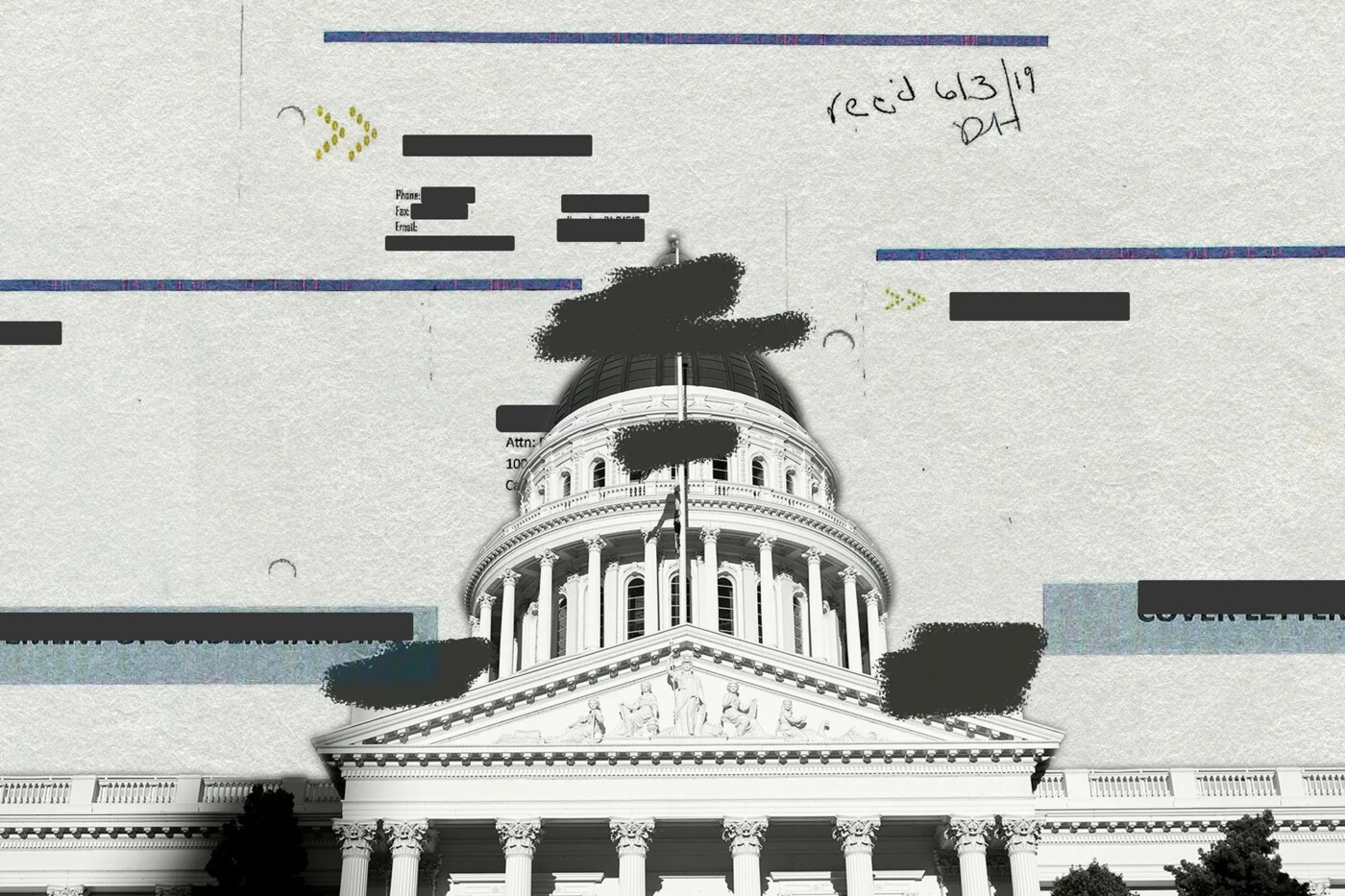When Assemblymember Vince Fong put in a Public Records Act request to get voter registration information from the Department of Motor Vehicles to help a constituent, the agency denied his request based on what he believed was shaky reasoning. His only recourse: Going to court.
If that’s the experience for a state lawmaker, Fong said he can only imagine what it’s like for a member of the public.
That’s what prompted the Republican lawmaker from Bakersfield to introduce, for the third time, a bill to test for three years the Office of the California Public Records Act Ombudsperson.
“To expect the average citizen to take the government to court and expend resources was just a nonstarter. It’s not fair,” Fong said.
“When we talk about transparency, we have to live it out, especially when we talk about our actions and the actions of state government.”
While his previous bills failed, Assembly Bill 469 has passed unanimously through committees and the full Assembly. It has a Democratic co-author, Assemblymember Buffy Wicks of Oakland.
At least 18 other states have a similar office or process to resolve public records disputes, according to the Reporter’s Committee for Freedom of the Press,
But the bill — which has drawn far less attention than another public access-related measure that would allow state agencies to continue open meetings under some pandemic rules — only has until Thursday to win final passage this year.
And it isn’t without opposition.
The First Amendment Coalition, though not officially registered as an opponent, is concerned that the bill’s language allows, and encourages, state agencies to appeal the ombudsperson’s decision in court and potentially drag in people who requested the records, said David Loy, legal director for the coalition, which advocates for transparency and access to public records.
The court’s review of the records request would be independent of the ombudsperson’s findings, Loy added. So in the coalition’s view, state agencies have nothing to lose by going to court — which gives them “two bites at the apple,” and, at the least, delays the release of records.
“We’re very concerned about anything which would codify any process that would allow a public agency to bring an ordinary person into court just for seeking public records,” he told CalMatters.
But Fong said the ombudsperson could help government agencies avoid costly lawsuits.
How would the office work?
Fong’s bill, in its latest form, would require the governor to appoint an ombudsperson to decide within 30 days whether denials of public records requests comply with state law. If they find it was improperly denied, they would require the state agency to provide the public record.
The ombudsperson would also be required to create a process to ensure privacy of anyone mentioned in a record, and report the number of requests to the Legislature annually, starting in March 2025.
While some agencies have an ombudsperson, they focus on general disputes and not on public records, according to an analysis by the Assembly judiciary committee.
The analysis also notes that, unlike public records laws in other states, California does not give the attorney general the authority to enforce the act against agencies, unless it has been denied access, itself.
Fong’s initial bill placed the role under the State Auditor’s office, but was amended in committee to create an independent office due to concerns about conflicts of interest — for example, if a review of the state auditor’s decision is requested.
One concern the judiciary committee noted: The bill only applies to state agencies, not local governments, which receive, and “inappropriately deny,” far more requests. Plus, applying a law differently to state agencies than local agencies could be confusing.
But the bill, like one last year, does require a report, by March 1, 2026, to assess whether local agencies should be covered.
Supporters of the bill include the California Association of Licensed Investigators, the Howard Jarvis Taxpayers Association, the California Association of Bond Oversight Committees and Oakland Privacy, a citizens’ group focused on privacy rights and public transparency.
Besides the court appeals, the First Amendment Coalition says it is concerned that the bill allows third parties to be involved in the request if they have concerns about privacy. And since the ombudsperson would be appointed by the governor, that could lead to politics.
“That’s not a comment on a particular governor, or whoever’s in that seat,” Loy said. “Any time you have a political appointment, the employment process necessarily becomes politicized. And transparency is, or should be, above politics.”
There’s also the issue of financing a new state office when California faces a $32 billion budget deficit. Creating the office would cost “likely in the tens of millions” for staffing, IT infrastructure, and other operating expenses, according to the Senate appropriations committee. In addition, it could cost potentially “tens of millions” for state agencies to comply with the ombudsperson’s requests.
The bill was amended after recommendations by the appropriations committee to make it subject to an annual appropriation by the Legislature.
Fong is no stranger to budget concerns. As vice chairperson of the Assembly’s budget committee, he’s often the voice of fiscal responsibility. But this is an expenditure he sees as worthwhile — and one he vows to fight for if the bill is signed into law.
“Your investments and your budget reflect your priorities. And so if transparency is a priority, then we have to make it one,” he told CalMatters. “We work for the people. And so not the other way around. And so when we make impactful decisions, then you know, the public deserves justification. And if they ask for data and ask for records, you know, they should have access to it.”
